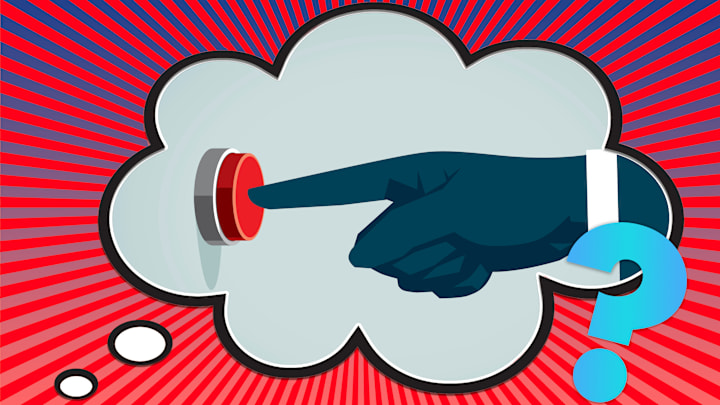Few buttons are as popular as the type served hot, as some recent news headlines show: “Immigration is a complicated hot button issue. Voters views are complicated too” (NPR). “Letters log April 25- May 2: One hot-button issue drew some nuanced responses” (NOLA.com). “North Macedonia to elect president after campaign focused on hot-button issue of EU membership” (AP News).
But what is a hot button issue anyway? And why is it called that?
The Meaning—and First Use—of Hot Button
These days, the phrase hot-button issue or hot-button topic refers to any matter that is fraught with emotion, especially the visceral type. If a subject gets people upset, agitated, excited, or out of sorts, the button temperature is high.
Some of the most searing hot-button topics are abortion, immigration, politicians, war, and religion. According to the Oxford English Dictionary (OED), the first known use of hot button was recorded about the latter subject in a 1966 New York Times article: “Dr. Martin E. Marty, Lutheran theologian … acknowledges that the ‘God Is Dead’ theologians have their finger on the ‘hot button.’”
Two senses of the term eventually emerged—there’s the hot-button topic as we think of it today and a less common commercial meaning. The OED defines the second sense as “a desire, need, or concern that motivates people to choose among consumer goods; (also) a product, idea, or form of advertising that exploits such motivation.” That usage overlaps with the political meaning for sure: Both marketers and politicians know which buttons to push to get an immediate, visceral reaction.
But Why a “Hot Button”?
Think of hot topics and hot takes. According to Grammarist, “Marketers used hot button to describe the desire or need that a product would fulfill and thereby entice a consumer to buy that product. The assumption is that the advertising devised by the marketers would ‘push’ that button and impel the consumer to [buy] the product.”
Author and journalist William Safire wrote about the topic of hot-button topics in a 1988 column for The New York Times (seemingly inspired, in a somewhat meta twist, by a piece in Newsweek); he included the column in his 1993 collection of essays on language, Quoth the Maven. In it, he asserted that the phrase “was created in the hard-sell field of consumer marketing.” Still, some of his readers disagreed: One correspondent wrote that, “I think the term hot button comes from psychotherapy, not marketing.” In What Do You Say After You Say Hello?, published in 1972, Eric Berne, the originator of transactional analysis, defines button as ‘an internal or external stimulus which turns on scripty or gamy behavior.’” That certainly fits with the various uses of hot button, in which reactions aren’t scripted but certainly are predictable.
So when you push someone’s hot button, they buy—or buy in by having an immediate, knee-jerk reaction. Hot button topics have something in common with pet peeves; when the peeve activated, the peeve-haver just can’t help but get upset.
Read More Stories About Phrase Meanings Here:
